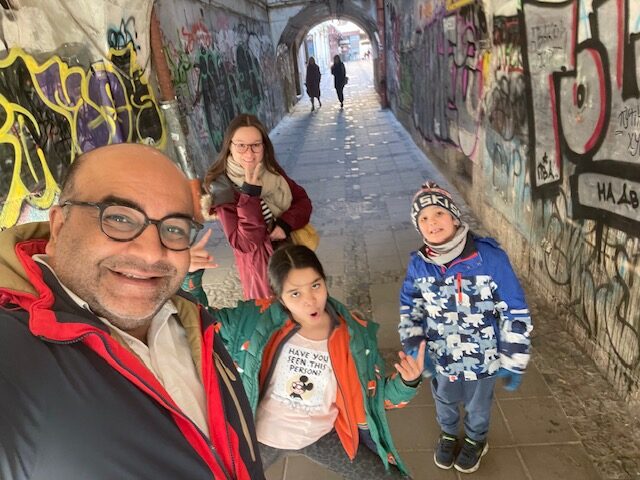My journey as a trailing spouse began in 2016, when my wife got a job offer to be a Gender Officer for the U.N. High Commissioner for Refugees (UNHCR) in Eastern Ukraine. I had recently been let go from my position as Associate Director for International Development at Michigan State University, and we had two young children. The timing seemed right, and we landed in Kyiv that summer.
Six years later, we were fleeing for our lives, catching one of the last flights out of a war zone with whatever we could carry.
But long before that happened, despite my initial enthusiasm for our new lives, the experience had been disastrous. I had no idea about the loneliness and the absolute despair and loss of self-worth one can feel as a trailing spouse. Having held very senior roles with highly-respected institutions like the United Nations and Columbia University, it was disorienting to find myself as a stay-at-home dad with small kids in a land where I didn’t speak the language and even the simplest menu requests were met with resistance.
Where do we belong?
Up until 2016, I had already lived and worked in so many different parts of the world — including India, the United States, Liberia, Kyrgyzstan, Afghanistan, Kosovo, Bosnia and Herzegovina, Malaysia, and Canada — that I didn’t expect Ukraine to be such a significant culture shock.
We are a family of international citizens with multiple passports, in fact. I was born in Ludhiana, Punjab, then moved to the U.S. as a teenager; my wife was born in Tashkent, Uzbekistan, and was working in Kosovo when we met as U.N. volunteers there, then in Syria when we got engaged. Between us and our two children, we speak Russian, Hindi, English, Uzbek, Persian, Urdu, Ukrainian, Punjabi, French, and a little bit of Turkish, Arabic, and Spanish.
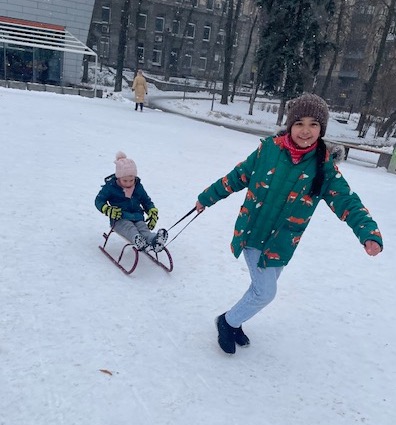
But on the Gupte Scale, the move ranked low — no higher than 6 points out of 15. Initially, we were not in Kyiv but in Dnipropetrovsk, in a more remote part of the country. The grocery stores were well-stocked, but with mostly former Soviet and some European foods rather than any of the familiar comforts of American, Indian, or Asian foods. The location did offer some excitement — definitely more than the doldrums of Osh, Kyrgyzstan and East Lansing, Michigan — in the form of accessible travel opportunities for exploring the rest of Europe. The timing helped at first by giving me a career break, but being in a hard-to-understand area broke my spirit and I stopped looking for work during what should have been some of my prime earning years. The climate was too cold for my liking, and I felt uncomfortable interacting with so many strangers.
The situation was hard, both personally and professionally. As an American of Indian origin, I found it difficult to adjust to the food, language, and culture. Ukraine is a fairly patriarchal society, where a wife working and a husband staying at home and caring for the children is quite uncommon. I felt completely alienated, and the isolation and pressure I felt as an unemployed man and primary caregiver to our children took a toll on marriage and all our lives.
Although I had always been an athlete — a competitive tennis player growing up, and a marathon-runner as an adult — I totally let myself go and my health declined.
Most people we met were through our kids’ schools or through an old college buddy Serhiy Uryn, who is Ukrainian, or through some Indian expat circles there.
The Ukrainians are very nice; my lack of adjustment wasn’t anyone’s fault, but simply a fact of life. For my wife and kids, Anarkali and Darius, adjusting to Kyiv was much easier, especially with their Russian language skills.
On top of all that, throw in the existential fear brought on by the COVID-19 pandemic and the first 100 days of lockdown life, followed by nearly two years of no international travel.
On the bright side… well, I don’t quite know what the bright side was of my six years in Ukraine! Maybe just experiencing the historical importance of seeing a new country take shape and change its spirit from Soviet to European? I did work a lot on my poetry, launching my own website (mrurdupoetry.com) and YouTube channel (Mr Urdu Poetry). And the pandemic did suddenly make my underemployed-and-stranded-with-kids situation feel relatable to more people!
How do we get out of here?
We left Ukraine on the day the war started this year, late in the evening of Feb. 23. As we reached Poland, bombs and missiles rained on Kyiv. We were very fortunate to have a narrow escape, without very little notice due to conflicting intelligence reports. We didn’t get anything out of our two homes — just one suitcase and a few handbags. If we hadn’t left when we did, we’d be in bomb shelters as we were on one of the last flights out before the airspace completely closed.
Most of our expat friends were also able to evacuate, but not all our Ukrainian ones. My wife’s subordinates and colleagues were left in particularly dire straits as they worked the East/Donbas frontline region.
After reaching Poland, my wife and I weighed our options: staying, going back to the U.S., or moving on to a third country. My brother lives in New York, my mother lives in Punjab (India), and my wife’s family lives in Tashkent, Uzbekistan.
We decided to come to India and either try to continue working remotely or find new adventures and teach our growing kids more about their Indian heritage. Our Overseas Citizen of India (OCI) status allows us to live and work here, so that gives us enough flexibility once we figure that part out. Meanwhile, our stuff still isn’t out of Ukraine, given that the seaports are currently controlled by Russia and the cost of getting things shipped out is five times what it should be…
What do we do now?
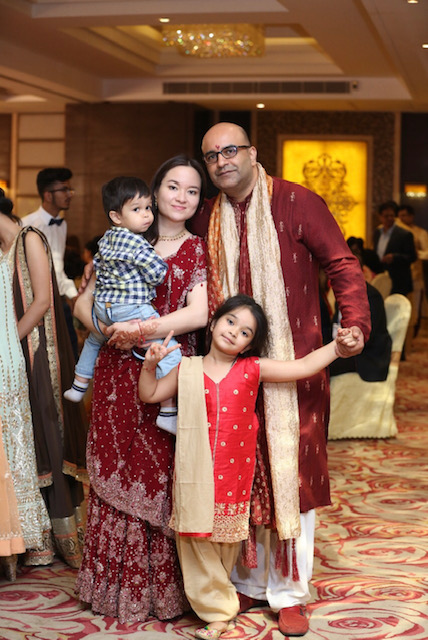
On the Gupte Scale, moving from Kyiv to Delhi has scored about average, maybe an 8 out of 15. Our destination, timing, and resources have been decent. I do miss my two great friends, Andrew and Serhiy, and our small circle of expat French and European friends from our school. I don’t miss my own sad, lonely walks, but the adjustment has been harder on my wife and kids this time; they miss the ease of calm, public spaces for walks, along with their colleagues and classmates.
My wife’s last day of work was Sept. 30; she opted not to leave us to return to Ukraine, which was the requirement to keep her job. We thought we’d take a sabbatical or a hiatus to let ourselves breathe a bit together rather than sort of long-distance survival within Ukraine where my wife was at the frontlines in Donbas, while the kids and I were in Kyiv.
We are both terrified and excited at the options life may present us. India is definitely a richer country and allows for far more possibilities for one’s dreams so we are pursuing our dreams here: me of being a proper writer and my wife of being a proper practicing artist. (See some of her work here.)
India’s chaotic nature is something to get used to — but the food is wonderful, people are warm, everything is available, and I am better equipped to help myself and my family as a guide.
Who are we now?
It has been a bit weird, feeling like an Indian for all expats and expat for all Indians. My tastes for food are Mexican and American as well as Indian. My desire for physical distance and physical space has changed, though it is adaptable. My relationships with extended families are weak, if not negative, due to not having shared critical moments of each other’s lives and our cultural differences.
Suffice to say, there are pressures and joys for me here of all kinds that can at once make my head burst with anxiety (e.g., driving in Delhi), and delicacies to make my mouth water all the way to the Brahmaputra (the largest river of India). Kindness is plentiful; so is aggressive driving and constantly being taken for a ride in all senses. India is endlessly self-contradictory, and all its insights lie in that tiny sliver of crossover Venn-diagram style.
But for my fully-expat spouse and kids, this experience of landing and living in India is completely foreign. It doesn’t leave much room for my own weirdness, where I have to navigate what it means to be Indian again as an American in India. It is all very exhilarating as some things are familiar and trigger nostalgia of early childhood — and some things are really aggravating.
One of the strangest feelings is to be living in India again after 30 years abroad and not have my father around.
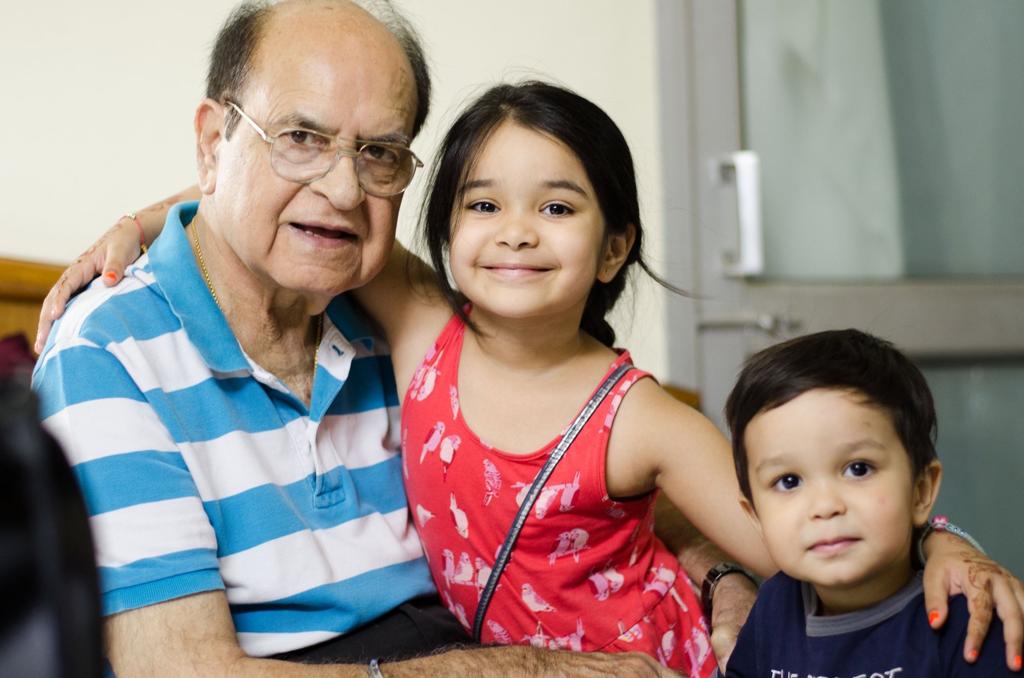
Dr. Subhash Sachdeva was larger than life, at least in the lives of all he touched; he loved adventure and drank from the cup of life with gust and passion. Throughout his five decades as as internal medicine specialist, family doctor, and general practitioner, he had immense diagnostic ability and a wonderful heart to treat the wealthy and the destitute all the same, and had amazing detective-like abilities to crack the hardest medical cases. He was proud to be named a Fellow of the Royal Society of Health in the U.K., and to have treated patients from all over the world.
He passed away from complications of Parkinson’s disease in April 2018, while I was serving with U.N. Women in Kabul, Afghanistan
We wish we could have celebrated his birthday with him this week, on Oct. 14 — he would have been 75 this year, reaching the same milestone as India’s independence. But, I am in a way grateful he didn’t have to suffer through the forced-isolation of the pandemic and got to have a proper cremation and service with friends and family all around in his final journey.
Still, it would have been nice to spend time together now. He would have maybe seen this article and maybe asked me to buck up and go and find new mountains to climb and new vistas to see and to leave the war behind. Here’s to you Dad — a toast of all that was, and all that has yet to come.
After that, Diwali, a major festival celebrated across India, falls on October 24 this year. It will be nice to be with Mum in Punjab as a family for this holiday season, for the first time in years. She had massive health scares in New York City last year when she had to have two surgeries on the spine, and then one for the heart where she was resuscitated and then a cardiac pacemaker put in, all during the Covid era. We are lucky that our kids now have this time to grow closer to Grandma and learn more about their culture.
Where do we go from here?
We’re aiming to move back to the United States in Fall 2025, continuing our careers with the State Department, USAID or one of their partners. My wife and I might even go back to school and train as psychologists, to try and heal other refugees or people from around the world that may come to the U.S. and need mental health support in these uncertain times.
In terms of what lessons I have learned from finding myself in a tough situation that could help other trailing spouses… I don’t know. Each situation is truly different. Being a trailing spouse is just the way life works sometimes. If you feel unhappy about it, stay focused on the fact that this is a finite experience — with a beginning and an end. Join all the expat organizations you can find — or start one. Meet all expats you can find. When things get really tough, don’t get down on yourself or hurt yourself; split or leave, find sanity somehow.
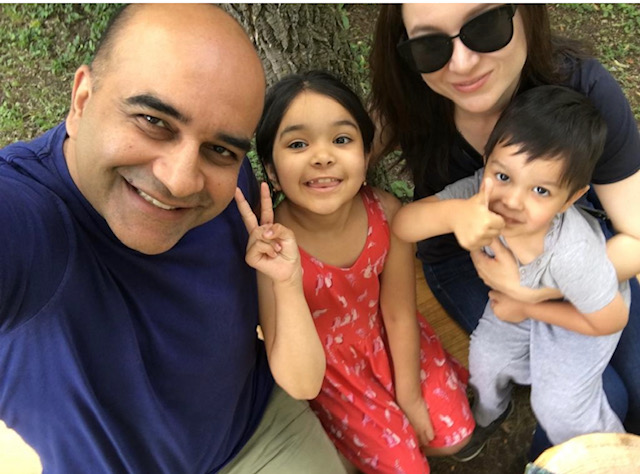
Trailing has inspired me to be a very involved father. Although I taught and worked in women’s rights, becoming a stay-at-home parent with young kids put me to the test and taught me the greatest value — care. One day, it will make me a better known poet and who knows? Perhaps a better therapist, too.
And guess what? I have just registered for the Vendanta Delhi Half Marathon, as a 10K runner. Wish me luck on Oct. 16 — and check Trailing-Spouse.com’s Facebook and LinkedIn pages for my results soon!
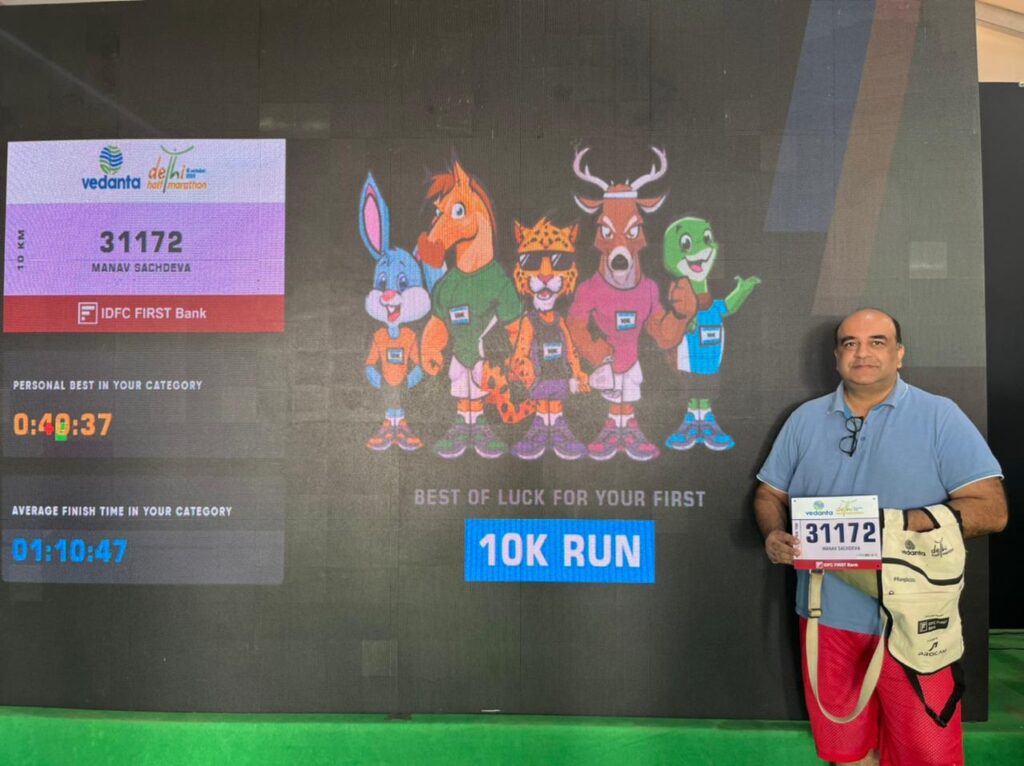
Got a relocation story of your own to share? Contact us at hello@trailing-spouse.com.

